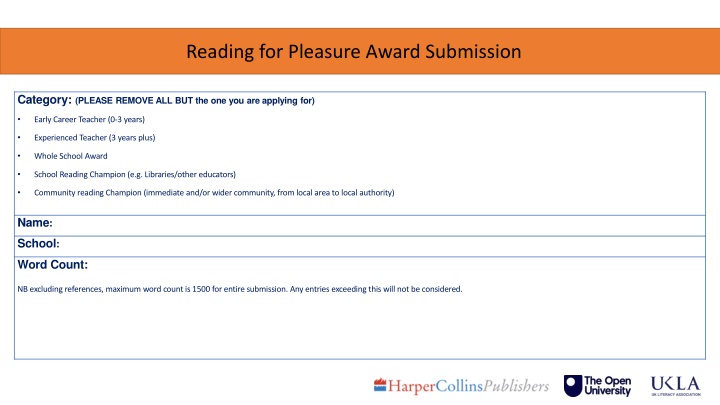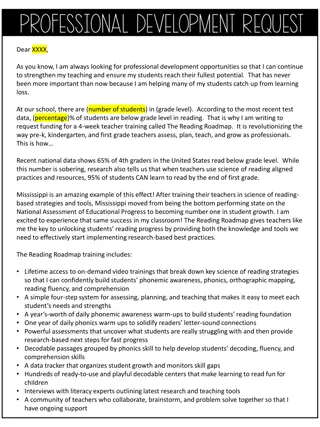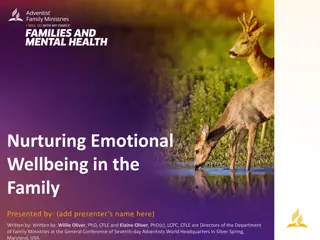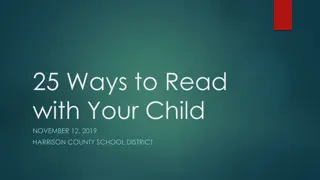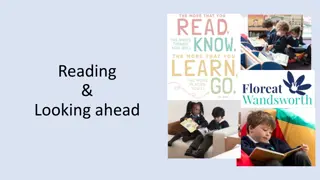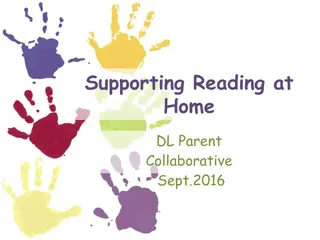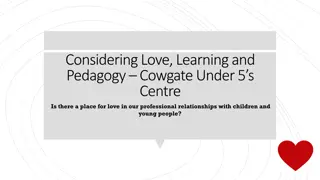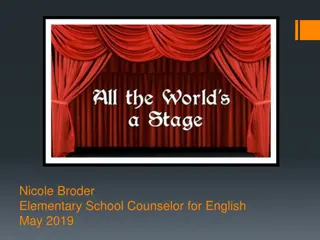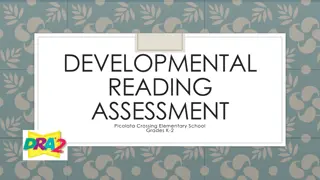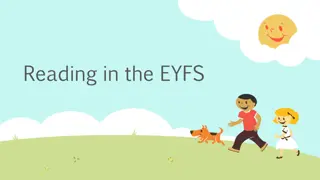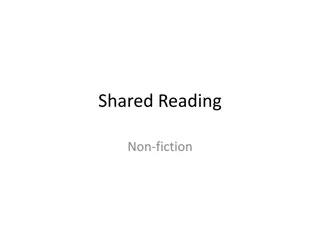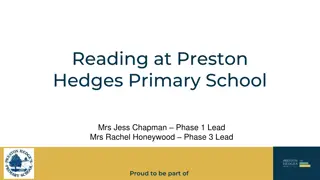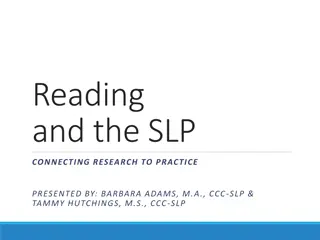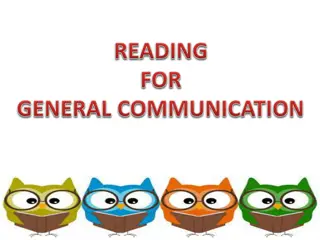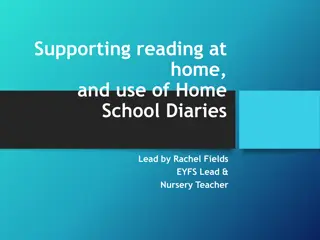Nurturing a Love for Reading: Transforming Students through Engagement
Drawing inspiration from research on reading for pleasure, this submission highlights the implementation of effective strategies to foster a love for reading among students. The work focuses on creating social reading environments, promoting daily storytime sessions, and enhancing students' reading practices to improve their enthusiasm, attainment, and well-being. The impact on children's reading for pleasure and the future plans to support their engagement as readers are also discussed.
Download Presentation

Please find below an Image/Link to download the presentation.
The content on the website is provided AS IS for your information and personal use only. It may not be sold, licensed, or shared on other websites without obtaining consent from the author.If you encounter any issues during the download, it is possible that the publisher has removed the file from their server.
You are allowed to download the files provided on this website for personal or commercial use, subject to the condition that they are used lawfully. All files are the property of their respective owners.
The content on the website is provided AS IS for your information and personal use only. It may not be sold, licensed, or shared on other websites without obtaining consent from the author.
E N D
Presentation Transcript
Reading for Pleasure Award Submission Category: (PLEASE REMOVE ALL BUT the one you are applying for) Early Career Teacher (0-3 years) Experienced Teacher (3 years plus) Whole School Award School Reading Champion (e.g. Libraries/other educators) Community reading Champion (immediate and/or wider community, from local area to local authority) Name: School: Word Count: NB excluding references, maximum word count is 1500 for entire submission. Any entries exceeding this will not be considered.
Title Context Offer a brief account of where you work, naming your school and the county it is in. Please include your school logo (having gained permission). You may wish to highlight an aspect of the school s development plan if it connects to this work. Research inspiration and rationale Describe what research you are drawing on that inspired you to further develop reading for pleasure in your class/school and why. This might include a particular strand of the OU/ UKLA Teachers as Readers (TaRs) findings (1-5), which found that to foster reading for pleasure effectively, teachers need to develop: 1. Considerable knowledge of children s literature and other texts 2. Knowledge of children s reading practices 3. A reading for pleasure pedagogy which includes: Social reading environments Reading aloud Independent reading Informal book talk, inside-text talk and recommendations 4. As Reading Teachers: teachers who read and readers who teach 5. Reading communities that are reciprocal and interactive This might also include the Farshore s Storytime in School research which highlighted the positive impact of daily storytime on children s enthusiasm for reading. The study found when children were read to daily, simply for enjoyment, there was an increase in their volitional reading. Their attainment in both reading and comprehension improved and there was also a positive impact on wellbeing. Feel free to connect to other research on reading for pleasure as well, as you wish.
Aims Outline the specific aims you wished to address in your work and link it to the research/evidence base. Consider the children s needs too, did you seek e.g. to respond to a lack of interest, low reading stamina, or support choice? Do use bullets. Outline Describe the work you undertook to achieve your aims. PHOTOS are vital to convey this work visually e.g. of the classroom, of relevant books, of children (check permissions/ethics).
Impact Outline the impact that this work had on the children and their RfP, and or on you as their teacher/other staff/other adults. Note evidence e.g. through survys, observations of shifts in attitudes or behaviour, with quotes from children, staff and others. This might focus on particular children and include photos. Outline Reflect on which specific aspects of the research influenced your practice and in what ways. Building on this, what are your plans and next steps to support children s volitional engagement as readers?
